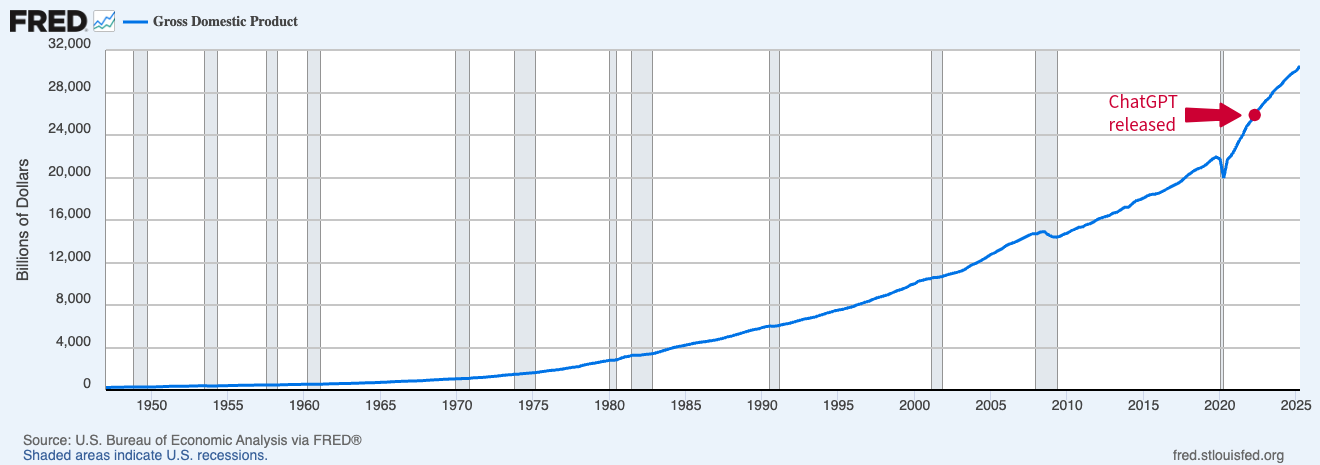
The shifts taking place in knowledge work have become an extremely reactive topic as of late. It's no wonder when we're internalizing headlines with the most shock value as complete pictures of the world. We see 14,000 corporate layoffs at Amazon and feel compelled to feed into the growing Humanity vs. AI narrative.
It’s natural to harbor a sort of pessimism about the future of work, especially if you’ve been personally affected by a layoff made to “improve efficiency gains." But there’s a lot more nuance behind these corporate blanket statements.
For starters, this is not yet a technology that’s moving the needle for most companies. In fact, it’s largely failing because:
a) AI-powered workflows in a business context are useless without humans
b) humans are slow to adopt workflows they fear might replace them
It’s a chicken and egg scenario. Companies will end up hiring again as soon as the applications for AI start to sharpen and provide value, granted employees actually understand how to use them.
So no, AI will not take your job. But an AI power user might.
Since the Industrial Revolution, we have turned to automation as a balm for tedious and time-consuming tasks. AI is a natural progression of this automation. It may substitute for certain types of white-collar labor—data entry, reporting, meeting notes—but it will also create entirely new categories of work the way the Internet or social media did.
This is why people closest to the work, as opposed to managers, have the greatest opportunity to take advantage of AI and gain more leverage in their roles. The path to increased productivity, which frees up time for re-skilling, will reposition them for entirely different jobs than the ones they started in. An account exec may find much of their research and follow-up processes augmented by AI, but that doesn't render an AE obsolete. The job description will simply expand and transform to embrace the activities they can bring more value to, such as proactive client outreach and new partnership opportunities.
There's a happy medium to be found between pretending AI doesn’t exist and ringing the alarm bells for mass structural unemployment. At the end of the day, humans are more than a collection of tasks to be completed, and far more than the current scope of AI. We retain institutional knowledge, maintain personal relationships, and deliver points of view on our offerings and industries that agents will always struggle to simulate. Even if humans are not in the weeds of the actual work, we will be directing, monitoring, and making final judgement calls.
Andrej Karpathy, a leading voice in AI research, offers a much-needed dose of realism in today’s heated debates. He cautions that AGI—true artificial general intelligence—is still at least a decade away, and the tools available right now are nowhere near the level of cognition or reliability required to independently replace humans.
Rest assured, we will not wake up to an announcement from OpenAI next year that AGI is being unleashed on society. Karpathy expects a slow compounding of capabilities that will unfold over many years, blending into the average 2-3% growth we've seen in GDP each year. While we might trend exponentially, ChatGPT did not create a spike in the economy, and any one of its future iterations will not bring widespread human displacement.

Most importantly, he highlights how the ability to think critically, adapt, and foster trust will become even more essential as technology evolves. Fortunately, humans rock at this! We shouldn’t be so worried about outpacing AI in our roles, but rather excited about learning to work alongside it. At the end of the day, human curiosity, ingenuity, and resolve are not going anywhere. We are the center of this silicon universe.